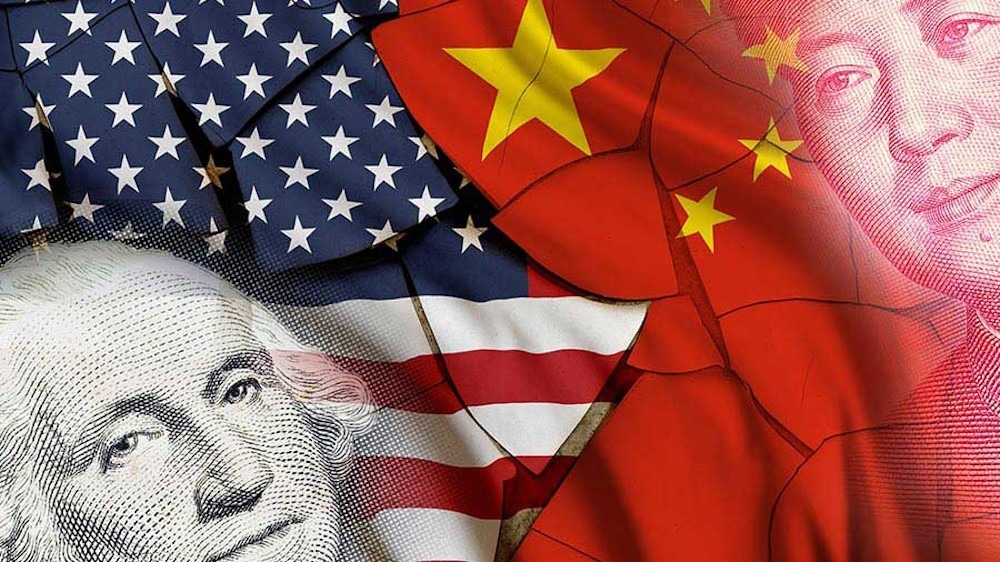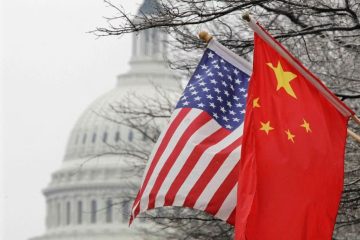China strikes back as the Trump trade war approaches

In the course of Donald Trump’s initial term, China recognized its inability to compete with the significantly larger U.S. economy in a tit-for-tat tariff strategy, prompting it to seek alternative methods to exert pressure—frequently drawing from Trump’s own tactics. As Trump prepares for a potential second term, Beijing is poised to unveil a broader array of countermeasures in response to the president-elect’s threats of sweeping tariffs and levies reaching up to 60% on products manufactured in China.
Recently, Beijing has initiated a regulatory investigation into U.S. semiconductor leader Nvidia, issued threats to blacklist a notable American apparel manufacturer, restricted the export of essential minerals to the U.S., and tightened the supply chain for drones. These actions provide insight into the increasing prominence of non-tariff measures in China’s strategic arsenal. The United States imports significantly more from China than it exports to it—approximately threefold—rendering Beijing unable to retaliate in kind regarding tariffs. Such actions would likely intensify the numerous challenges facing China’s economy.
In the struggle against a more formidable adversary, it is advantageous to identify distinctive leverage points to exploit—much of the pain inflicted on the U.S. stems from its own strategic maneuvers. On Monday, Chinese market regulators revealed an antitrust investigation into Nvidia, occurring approximately one week after the outgoing Biden administration intensified restrictions on China’s access to advanced semiconductors. Beijing has indicated that the Santa Clara, California-based semiconductor behemoth might have breached the stipulations of a conditional approval granted in 2020 for its takeover of an Israeli networking company.
The timing of the regulatory investigation—almost five years post-transaction—and the prominent target—an American technology giant leading the charge in innovation—highlights Beijing’s readiness to employ legal mechanisms against even the most formidable American entities. Angela Zhang, a law professor at the University of Southern California, noted that the strategy was initially implemented during the first Trump administration. She highlighted China’s decision to withhold approval for the proposed merger between Qualcomm and NXP Semiconductors in 2018, during the peak of the initial U.S.-China trade war—transforming the deal into a strategic bargaining chip in trade discussions. The agreement failed to secure China’s endorsement and ultimately disintegrated.
In this context, China’s influence stems from its ability to examine international mergers, even those that appear only tangentially connected to the nation. Chinese regulators employed a comparable strategy to thwart Intel’s $5.2 billion acquisition of Israel’s Tower Semiconductor in 2022, delivering a significant setback to a key element of Intel’s ambitious restructuring agenda. In this instance, Chinese regulators refrained from specifying any alleged wrongdoing by Nvidia or clarifying the rationale behind their actions so long after granting conditional approval. Nevertheless, observers within the industry were largely united in interpreting the move as a clear signal of China’s readiness to respond to U.S. pressures. On Monday, Nvidia’s shares declined by 2.6%, resulting in a reduction of approximately $80 billion in its market capitalization.
Beijing must exercise caution to avoid overextending itself while it continues to pursue foreign investment opportunities. Impediments to engaging with specific U.S. entities may compel both Washington and international firms to seek alternatives, potentially undermining Beijing’s standing in the long run. Such prudence is evident in China’s initiative to establish a “unreliable entity list,” which targets foreign companies, organizations, and individuals that will encounter additional obstacles in their business dealings within the nation. The initiative, initially revealed in 2019, drew inspiration from measures previously implemented by the U.S. Commerce Department against the Chinese telecommunications behemoth Huawei Technologies and its associated entities, mandating that suppliers obtain licenses prior to engaging in commerce with those identified on the “entity list.”
China’s roster, however, stayed vacant until early 2023, when the nation identified two American defense contractors as unreliable entities following the U.S. military’s interception of a suspected Chinese surveillance balloon. The ambiguity surrounding China’s unreliable entity list is a significant characteristic. The absence of a time constraint on an entity’s tenure, coupled with the ambiguous criteria for both inclusion and removal, starkly contrasts with the more defined parameters found in the U.S. framework. However, these uncertainties arguably enhance its effectiveness, providing Beijing with considerable leeway to apply pressure on the United States.
In September, China’s Commerce Ministry announced it was examining the potential inclusion of PVH, the parent company of Calvin Klein and Tommy Hilfiger, on its unreliable entity list. The investigation was initiated following claims that the American firm had imposed a boycott on cotton goods sourced from China’s Xinjiang region “without any factual basis.” In 2020, PVH announced its intention to terminate all associations with factories or mills utilizing cotton sourced from Xinjiang. The United States imposed a ban on the importation of cotton products from Xinjiang, citing allegations of forced labor, which have been categorically denied by the ruling Communist Party of China.
Beijing issued a caution to PVH just one day following the U.S. government’s suggestion to prohibit the incorporation of Chinese and Russian parts in connected vehicles operating on American highways. Should it find itself on the list, PVH may face a prohibition on both sales to and purchases from China, effectively excluding the company from a rapidly expanding market that represented 6% of its global revenue in the previous year.
In addition to legal strategies, China is leveraging alternative sources of asymmetric strength to counter the U.S., including its dominance in the supply chain for drones and the production of essential critical minerals vital for semiconductors, batteries, and defense equipment. Last week, Beijing announced its intention to impose a ban on the export of gallium, germanium, and antimony to the United States, while also implementing more stringent reviews on graphite sales.
In recent years, China has established a commanding presence in the production of a wide range of minerals, driven by advanced technology and competitive operating costs. The U.S. government and its allies have intensified efforts to boost the mining and processing of critical minerals. However, Western firms find it challenging to match the competitive pricing set by Chinese producers, as Beijing’s dominance over numerous strategic minerals continues to expand.
Gallium, a malleable silvery metal employed in semiconductor technology, sees China dominating the market with approximately 98% of the production of low-purity variants of this mineral. Prior to China’s prohibition, research released by the U.S. Geological Survey, a federal entity, indicated that a complete halt of China’s gallium and germanium exports could lead to a decline in American economic output amounting to $3.4 billion.
These countermeasures, although likely to inflict some discomfort on Washington, yield diminishing returns. The prior imposition of Chinese restrictions on certain minerals destined for the U.S. had already led to a significant decline in export volumes. Consequently, the ramifications of last week’s announcement are deemed “largely symbolic rather than practical,” as noted by the Washington-based think tank Center for Strategic and International Studies.
China is significantly advancing in the mass-market drone sector, establishing itself as the predominant force globally. Countries, including Ukraine with U.S. support, encounter significant hurdles in sourcing batteries, cameras, and electric motors, as their supply chains are intricately linked to China. Recently, China’s Ministry of Foreign Affairs declared sanctions targeting over a dozen U.S. drone-technology firms, among them those providing drones to Ukraine. Among these entities was Shield AI, notable for its artificial intelligence-driven long-range drone, which has been deployed in missions within Ukraine.
Nonetheless, the anticipation of sanctions had already driven numerous companies to seek alternatives outside of China for radios, compasses, motors, and batteries. Ryan Tseng, Chief Executive of Shield AI, indicated that the company has relocated its supply chain away from China, citing the looming threat of sanctions and U.S. national-security restrictions as factors that have rendered purchasing from China “commercially not viable” for some time. “It appeared unavoidable, thus there is little astonishment that it transpired,” Tseng remarked.
Dmytro Shymkiv, a founding partner at Ukraine’s AeroDrone, opted to replace Chinese components in 2022. The producers of a Ukrainian long-range drone hybrid known as January, which employs rocket motors to enhance the initial phase of its flight, have reportedly reduced the proportion of Chinese components to a mere 20% of the weapon, as per an informed source. Nevertheless, several Ukrainian firms have reported increasing challenges in importing specific supplies, while certain Chinese suppliers have informed potential clients of imposed sales restrictions.
Matek Systems, a supplier of drone components based in Shenzhen, states on its website in a striking orange font that it will not supply products to governments or military entities “due to the export policy of drones/drone parts and compliance requirements.” The transition of U.S. drone manufacturers’ supply chains away from China has, nonetheless, progressed at a sluggish pace. China remains the preeminent force in the global supply chain for batteries and motors essential for the operation of small aircraft, including quadcopters and first-person-view drones. China accounts for over 90% of the magnets utilized in the motors that drive missiles, ships, drones, and satellites. Circuit boards are supplied more swiftly and at a lower cost from China. A Mavic drone produced by DJI, the leading small-drone manufacturer globally and identified as a national-security concern by the U.S. government, is priced at up to $4,000. In contrast, a similar drone manufactured with non-Chinese components can reach costs of up to $15,000, as noted by Yurii Poita, an analyst at Ukraine’s Center for Army, Conversion and Disarmament Studies.










